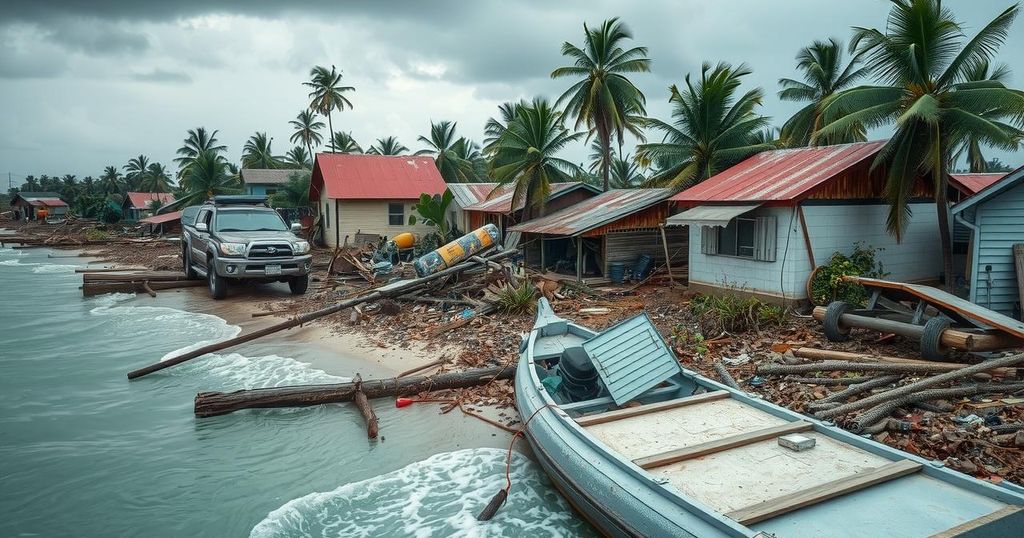Cyclone Chido caused widespread devastation in Mayotte and Mozambique, with infrastructure damage and the potential death toll reaching thousands. Climate change is cited as a critical factor in the cyclone’s strength. This disaster places millions at risk, despite promised aid from international organizations, hampered by undocumented residents who obstruct damage assessments.
Cyclone Chido made landfall in Mayotte on December 15, 2023, unleashing tremendous destruction across the island. The cyclone obliterated shantytowns, severely damaged essential infrastructure, including the airport, and left the region without power, water, and communication services. Experts attribute the cyclone’s intensity to climate change, which has resulted in warmer waters of the Indian Ocean. Rescue efforts are severely hindered by these conditions, and the potential death toll is expected to reach thousands. Following its impact on Mayotte, Cyclone Chido moved towards Mozambique, initiating further devastation. The UN Office for the Coordination of Humanitarian Affairs has warned that approximately 1.7 million individuals in the surrounding areas are currently at risk. In light of this crisis, European Union chief Ursula von der Leyen and the World Health Organization have committed to providing aid, though the presence of about 100,000 undocumented residents complicates comprehensive assessments of the damage.
Cyclone Chido is indicative of a concerning trend in extreme weather events, exacerbated by climate change. As ocean temperatures rise, the frequency and severity of hurricanes and cyclones are expected to increase, leading to significant humanitarian crises. The impacts of Cyclone Chido are particularly pronounced in Mayotte and Mozambique, where infrastructure is fragile, and populations are vulnerable. Accurate assessments and responses to such disasters are crucial for mitigating long-term effects on these regions.
In conclusion, Cyclone Chido has had devastating impacts on Mayotte and Mozambique, with the potential for a high death toll and extensive damage to critical infrastructure. The storm highlights the urgent need to address the underlying issues related to climate change, as well as the importance of effective disaster response strategies. Humanitarian organizations and government bodies must work collaboratively to assess and address the needs of affected populations.
Original Source: m.economictimes.com






